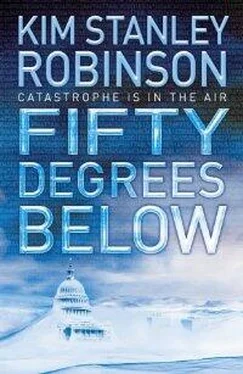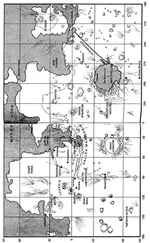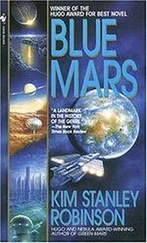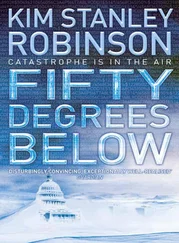“The salt fleet is an international project, coordinated through the UN. The part of it we’re paying for comes from an appropriation Congress made because of a bill I wrote. The president tried to hamstring this great project up and down the line. Come on! You all know which candidate will work to protect the environment, and it’s me, me and my party. Let’s turn it into a big party. We can make things better for our kids, and that’ll be our fun. That’s the way it’s always been until now, so you can’t let the fear and greed guys scare you ’til you cut and run. The new climate is an opportunity. We needed to change, and now we will, because we have to. What could be more convenient?”
This played well too, much to the pundits’ private surprise (in public they always knew everything), and now Phil’s numbers went up. He was polling neck and neck with the president, and doing particularly well among the boomers and their children the echo boomers, the two biggest demographics.
The president’s team continued to transpose what was working for Chase into the president’s campaign. They began to proclaim the bad weather to be an economic opportunity of the first order. New businesses, even entire new industries, were there for the making! The bad weather was obviously another economic opportunity for market-driven reforms.
However, since he had been elected with the help of big oil and everything transnationally corporate, and had done more than any previous president to strip-mine the nation and use it as a dumping ground, he did not appear to be as convincing as Phil. It was getting hard to believe his assertions that the invisible hand of the market would solve everything, because, as Phil put it, the invisible hand never picked up the check.
So the election campaign wallowed along in its falsity and tedium, and surprise surprise, as the summer passed it became an ever-tightening race, just as all media hopeful for interested customers might have wished. These summer months were full enough of new weather anomalies and extreme events to keep Phil in the chase, as he liked to put it.
So his campaign was doing well, and he kept it up with campaign events all over the world, including a return to the North Pole a year after announcing his candidacy. It was a bit of a throwback to his old World’s Senator mode, but he claimed its effect was good, and his team could only follow his lead. “I have to run on my record, there’s no other way to do it. I am what I am.” He started saying that too. “I am what I am.”
“And that’s all what I am,” Roy always sang when he said it, “I’m Popeye the sailor man! Toot toot!” Phil was in fact like Popeye in enough important respects that his staff started calling him that.
And Charlie had to admit that since the climate problem was global, campaigning everywhere made a sort of sense. It made Phil and his career and his campaign all of a piece. Meanwhile the president remained resolutely nationalistic, it was always America this and freedom that, no matter how transnational and oppressive the content of his positions. Patriotism as xenophobia was part of his appeal to his base, and it worked for them. But Phil’s people had a different idea: the world was the world. Everyone was part of it.
One unexpected problem for his campaign was that the “Scientific Virtual Candidate” was polling pretty well, up to five percent in blue states, despite the fact that the candidate was nonexistent and would not appear on any ballots. And this of course was a problem for Phil. Most of those potential votes came from his natural constituency, and so it was accomplishing the usual third-party disaster of undercutting precisely the major party most closely allied to its views.
Phil looked to Charlie on this. “Charlie, you have to talk to your wife and her colleagues at NSF about this. I don’t want to be accidentally nadered by these good people. You tell them, whatever they want out of this campaign, I’m their best chance at it.”
“I don’t want to depress them that much,” Charlie deadpanned, which got a good Phil chuckle, rueful but pleased. His fear that running for president was going to lose him all real human contact (the unconscious goal of many a previous president), was so far proving unfounded. “Thanks for that thrust of rapierlike wit,” he replied. “There aren’t enough people saying deflationary things about me these late days of the campaign. You are indeed a brother, and we are a real foxhole fraternity, shelled daily as we are by Fox. But don’t forget to talk to NSF.” As far as Charlie could tell he was still enjoying himself enormously.
And Charlie did ask Anna and Frank what the plans were for the candidate experiment. They both shrugged and said it was out of their hands, the genie out of the bottle. At NSF they talked to the SSEEP team, who were of course already aware of the historical precedents and the negative ramifications of any partial real-world success of their hypothetical campaign. Until preferential voting was introduced, third parties could only be spoilers.
Frank got back to Charlie. “They’re on it.”
“How so, meaning what?”
“They’re waiting for their moment.”
“Ahhhhh.”
This moment came in late September, when a hurricane veered north at the last minute and hammered New Jersey, New York, Long Island, and Connecticut, and to a lesser extent the rest of New England. These were blue states already, but with big SSEEP numbers as well, so that after the first week of emergencies had passed, and the flooding subsided, a SSEEP conference was held in which representatives of 167 scientific organizations debated what to do in as measured and scientific a manner as they could manage—which in the event meant a perfect storm of statistics, chaos theory, sociology, econometrics, mass psychology, ecology, cascade mathematics, poll theory, historiography, and climate modeling. At the end of which a statement was crafted, approved, and released, informing the public that the “Scientific Virtual Candidate” was withdrawing from all campaigns, and suggesting that any voters who had planned to vote for it consider voting for Phil Chase as being an “electable first approximation of the scientific candidate,” and “best real current choice.” Support for preferential or instant run-off voting method was also strongly recommended, as giving future scientific candidates the chance actually to win representation proportional to the votes they got, improving democracy if judged by representational metrics.
This announcement was denounced by the president’s team as prearranged collusion and a gross sullying of the purity of science by an inappropriate and unscientific descent into partisan politics of the worst kind. The scientific candidate immediately issued a detailed reply to these charges in the form of all its calculations and a description of the analytic methods used to reach its conclusions, including point-by-point comparisons of the various planks of all the platforms, indicating that at this point Phil was closer to science than the president.
“You think?” Roy Anastophoulus said to Charlie over the phone. “I mean, duh. I hope this helps us, but isn’t it just another of those scientific studies that spends millions and makes a huge effort to prove the sky is blue or something? Of course Phil is more scientific, he’s running against a man aligned with rapture enthusiasts, people who are getting ready to take off and fly up to heaven!”
“Calm down Roy, this is a good thing. This is connect-the-dots.”
In public Phil welcomed the new endorsement, and he welcomed the voters attending to it, promising to do his best to adopt the planks of the scientific platform into his own. “CHASE PROMISES TO SEE WHAT HE CAN DO.”
Читать дальше
Конец ознакомительного отрывка
Купить книгу












